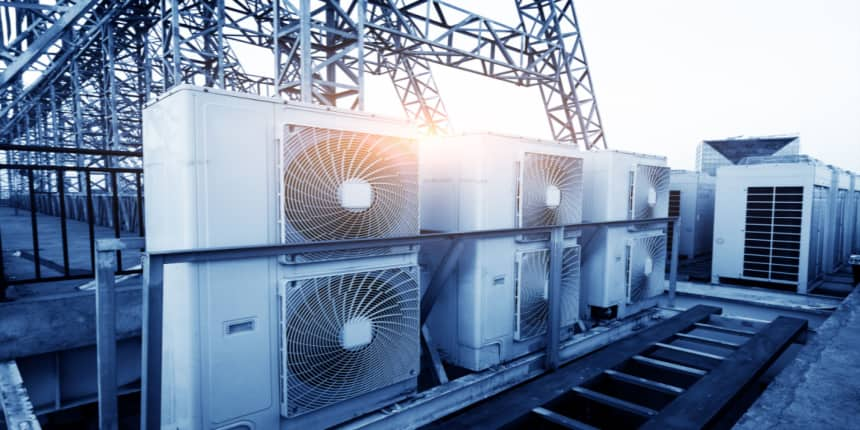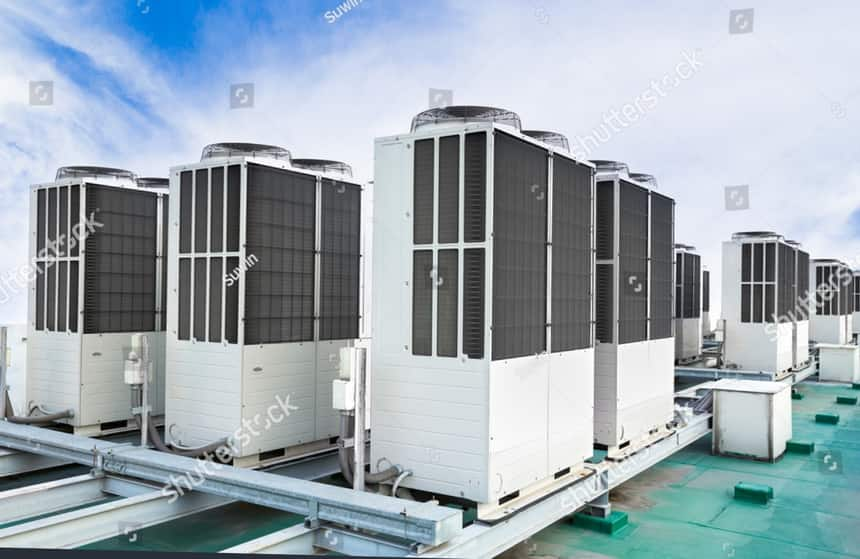HVAC Full Form
What is the full form of HVAC ?
The HVAC stands for Heating, Ventilation, and Air Conditioning. HVAC refers to the usage of different methods to keep air moving between outdoor and indoor areas. This also ensures warmth in the winter and helps us to feel fresh and cool in summer. This system also helps to purify and humidify the air. HVAC aims to provide acceptable air quality index and thermal comfort. Its design is based on the principles of fluid mechanics, thermodynamics, and heat transfer. Now -a - days HVAC is a common and essential part of residential structures such as homes, apartments, buildings, and many workplaces, offices, and schools.
- What is the full form of HVAC ?
- What are Heating, Cooling, and Ventilation?
- Basics of HVAC
- Types of HVAC
- History of HVAC
- Applications of HVAC
- Difference between HVAC and AC

What are Heating, Cooling, and Ventilation?
Before diving into the basics of HVAC machines, first let's discuss heating, air conditioning, and ventilation. It is the use of various methods to control the temperature, purity of air, and humidity. Heating is a process of generating heat with the help of several appliances. Heating can be done via central heating. And these central heating systems contain a boiler and furnace. Conduction, convection, and radiation are the methods by which heat can be transferred from one place to another place. Air conditioning is a system that provides a cooling effect and also controls humidity. Through air conditioning, we remove warm air from the environment and heat can be removed by conduction, convection, and radiation. Ventilation is defined as replacing the air from a particular space and bringing fresh air in.
Basics of HVAC
There are different types of HVAC systems. But all have the same fundamentals.
First, is ventilation which is defined as the exchange of air. For ventilation, there should be a source of fresh air. There are two types of ventilation- Natural ventilation and mechanical ventilation. Natural ventilation is present in most homes, where fresh air comes from windows, door vents, and other openings. Here natural air is drawn in and old air is brought out. Mechanical ventilation uses a mechanical system, in which air is drawn in through filters to remove dust, dirt, and other particles. After removing dirt and dust, either air is heated or cooled to remove excess humidity. The essential elements of HVAC are -
Furnace chamber
Heat exchanger
Evaporator coil
Condensing chamber
Vents
Ducts
Thermostat
Refrigerator line

Types of HVAC
There are four different types of HVAC, which vary according to size and structure.
Hybrid split system - The unique feature of this hybrid split system is that it carries a hybrid heating system. This system also depends on the thermostat and traditional ducts, and this system conserves energy and reduces the cost of electricity bills.
Heating and cooling split system - These are widely used systems of HVAC. These systems come in two units - one unit is used for heating and another unit is used for cooling.
Packaged heating and air conditioning system - These HVAC systems also contain both units- the heating unit and the cooling unit. It is generally placed on the roof and contains a compressor, evaporator, and condenser in a single unit.
Duct-free (Mini-Split) - This system is also placed in those areas where heating and cooling are required.
History of HVAC
HVAC is a bunch of technologies invented by many scientists such as Micahel Faraday, Willis Carrier, James Joule, Sadi Carnot, and many more. The inventions of components of HVAC systems went along with the industrial revolution and new methods were also being introduced from time to time by the company with higher efficiency.
Applications of HVAC
The HVAC system is used to improve the air quality index and also to provide thermal comfort. Currently, it is used in many homes and workplaces. Some of the applications of HVAC are explained below:
It is used in vehicles to maintain air quality and temperature.
It is used in hotels, and restaurants to kill microbes, pathogens, and other allergens.
It is also used in businesses, offices, and many other workplaces.
It is also used in schools, colleges, and other institutes to purify the air and maintain a normal temperature.
It is also used in many hotels and other places.
Limitations of HVAC
The limitations of HVAC are explained below:
It may cause the skin and mucous membrane to dry and irritate, and the skin may lose its moisture.
This system may increase the risk of infection, asthma, or other respiratory disorders if kept unclean and it may lead to the accumulation of microbes, dust, or other pathogenic organisms.
Sometimes due to sudden temperature rises, other respiratory systems may get worse.
Difference between HVAC and AC
There are many differences between HVAC and AC. Some of the differences are explained below:
HVAC is used to cool and heat our homes, offices, and workplaces whereas AC is only used to cool. HVAC also maintains the air quality of our surroundings.
Frequently Asked Questions (FAQs)
HVAC is used to regulate and move air from one place to another place throughout residential and commercial buildings.
The different types of air filters are: fiberglass air filters, pleated air filters, and high-efficiency particulate air filters. Pleated filters are more efficient than fiberglass filters in trapping dust particles.
Yes, HVAC is also used to heat our house. This is a system that is used to heat and cool the air in our home. The furnace, heat pump, and air conditioners are the products that provide heating or cooling effects in our home.
HVAC engineers are those engineers who take care of the HVAC system and also take care of our HVAC needs.
HVAC filters are those filters that are used to filter dust, pollen, pet danders, and other small particles out of the air from our homes and other places.

